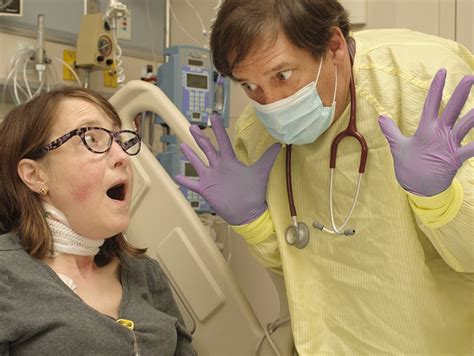
Using dated expressions in everyday conversation may inadvertently reveal your age, according to recent linguistic observations. While language is constantly evolving, certain phrases become associated with older generations, potentially marking speakers as out of touch. This awareness can help individuals maintain a more contemporary communication style and avoid unintentional age markers.
Aging Vocab: Are Your Words Giving Away Your Age?
Linguistic trends reveal that certain phrases, once common, now signal a speaker’s age more than intended. The evolution of language means expressions fall out of favor, replaced by newer terms reflecting current cultural norms. Identifying and understanding these shifts can help individuals maintain a contemporary communication style in professional and social contexts.
According to a recent analysis, several phrases, while still understood, are increasingly perceived as old-fashioned. Recognizing these expressions and their modern alternatives can help speakers avoid unintentionally signaling their age. “Language is constantly evolving, and phrases that were once common can become associated with older generations,” experts noted.
Here are thirteen phrases that might be aging your vocabulary:
-
“The Bee’s Knees”: Once a popular term for something excellent, this phrase now sounds dated. Alternatives include “the best,” “amazing,” or “fantastic.” The phrase originated in the 1920s, a period of significant cultural and linguistic change. Using it today evokes that era, placing the speaker outside contemporary language trends.
-
“Don’t Have a Cow”: Popularized by Bart Simpson in the early 1990s, this expression meaning “don’t overreact” has lost its currency. Current alternatives include “calm down,” “relax,” or “don’t freak out.” While it had a brief resurgence due to the show’s popularity, its usage has declined significantly, making it sound retro rather than contemporary.
-
“Groovy”: A quintessential term from the 1960s and 70s signifying something pleasing or excellent. Today, more current alternatives are “cool,” “awesome,” or “great.” Its strong association with the hippie era makes it a clear marker of a specific generation.
-
“Hip”: Similar to “groovy,” “hip” was used to describe something fashionable or in the know. Contemporary equivalents include “cool,” “trendy,” or “in.” The term’s origins can be traced back to the jazz scene of the early 20th century, solidifying its historical context.
-
“Catch You Later”: While still understood, this farewell has been largely replaced by simpler alternatives such as “see you later,” “bye,” or “later.” The phrase carries a slightly formal tone compared to its more casual replacements.
-
“Far Out”: Another term from the 1960s and 70s, “far out” expressed amazement or approval. Current alternatives include “amazing,” “incredible,” or “unbelievable.” Its connection to the counterculture movement firmly places it in the past.
-
“As If!”: Popularized in the 1990s by the movie Clueless, this phrase expressed disbelief or disagreement. Modern alternatives include “no way,” “really?” or “I don’t think so.” Its strong association with a specific film and era makes it sound dated today.
-
“Rad”: Short for “radical,” this term was used to describe something excellent or exciting, particularly in the 1980s and 90s. Alternatives include “awesome,” “cool,” or “amazing.” Its peak usage coincided with the rise of skateboarding and extreme sports culture.
-
“What’s the 411?”: Meaning “what’s the information?” or “what’s going on?” this phrase gained popularity in the 1990s. Current alternatives include “what’s up?” “what’s going on?” or “what’s the news?” Its specific cultural context and relatively short period of widespread use contribute to its dated feel.
-
“Hunky-Dory”: Meaning “everything is fine” or “satisfactory,” this phrase dates back to the early 20th century. Modern alternatives include “okay,” “fine,” or “all good.” Its origins are somewhat obscure, adding to its old-fashioned charm.
-
“Darn”: A mild expletive used as a substitute for stronger swear words. Contemporary alternatives include avoiding expletives altogether or using more current, albeit potentially offensive, terms. The use of “darn” reflects a more restrained and polite form of expression common in previous generations.
-
“Fetch”: While still used to command a dog to retrieve something, using “fetch” to suggest someone get something for you is considered outdated. Direct requests are generally preferred. The term carries a servile connotation that is no longer considered acceptable in most social contexts.
-
“Bogue”: Once meaning something undesirable or fake. “That bag is bogue” would mean the bag is fake. Modern alternatives include saying the bag is “fake”, “cheap” or “counterfeit”.
The perception of these phrases as old-fashioned is not necessarily a judgment of their inherent value or historical significance. Instead, it reflects the dynamic nature of language and how certain expressions become markers of specific time periods.
The Significance of Language Evolution
Language evolution is a continuous process driven by cultural shifts, technological advancements, and social interactions. New words and phrases emerge, while older ones fade into disuse or acquire new meanings. This evolution impacts how individuals perceive each other, with language serving as a marker of social identity and group affiliation.
“Language is a living thing, constantly changing and adapting to the needs of its speakers,” explains Dr. Emily Carter, a professor of linguistics. “What was once considered cutting-edge can quickly become outdated as new terms and expressions emerge.”
The phrases identified in the analysis reflect this dynamic process. Their association with specific eras, such as the 1960s, 1980s, or 1990s, makes them sound anachronistic in contemporary conversations.
Impact on Social and Professional Interactions
Using outdated phrases can have unintended consequences in social and professional settings. While some individuals may find these expressions charming or nostalgic, others may perceive them as a sign of being out of touch or unfamiliar with current trends.
In professional environments, using contemporary language is often essential for effective communication and building rapport with colleagues and clients. Outdated language can create a barrier, particularly when interacting with younger generations who may not be familiar with the expressions.
“In a professional setting, it’s important to be aware of how your language is perceived,” advises career coach Sarah Johnson. “Using outdated phrases can make you seem less competent or less attuned to current trends.”
Similarly, in social settings, using contemporary language can facilitate smoother interactions and avoid unintentional miscommunications. While there is no inherent shame in using older expressions, being aware of their potential impact can help individuals make informed choices about their communication style.
Cultural Context and Regional Variations
It’s important to note that the perception of these phrases can vary depending on cultural context and regional variations. Some expressions may be more common or acceptable in certain communities or regions than others.
For example, a phrase considered outdated in a major metropolitan area may still be widely used in a rural community. Similarly, cultural background can influence an individual’s familiarity with and perception of certain expressions.
“Language is deeply intertwined with culture, and what is considered old-fashioned in one context may be perfectly acceptable in another,” notes cultural anthropologist Dr. David Lee. “It’s important to be mindful of these variations when communicating with people from different backgrounds.”
Strategies for Updating Your Vocabulary
For individuals who want to update their vocabulary and avoid using outdated phrases, several strategies can be helpful:
-
Pay Attention to Current Trends: Observe how younger generations and contemporary media personalities communicate. Pay attention to the language they use and the expressions they favor.
-
Read Contemporary Literature and Media: Immerse yourself in current books, articles, movies, and television shows. This will expose you to contemporary language and help you identify emerging trends.
-
Engage in Conversations with Younger People: Interact with younger colleagues, friends, or family members and pay attention to their language. Ask them about expressions you are unfamiliar with.
-
Use Online Resources: Take advantage of online dictionaries, language blogs, and social media platforms to learn about new words and phrases.
-
Be Mindful of Your Audience: Consider the age, background, and context of your audience when choosing your language. Adapt your communication style to suit the situation.
-
Practice Active Listening: Focus on understanding the nuances of contemporary language and pay attention to how different expressions are used in various contexts.
The Enduring Power of Language
While language is constantly evolving, certain expressions endure over time, retaining their charm and historical significance. These phrases may not be in widespread use, but they continue to evoke a sense of nostalgia and connection to the past.
“Language is not just a tool for communication; it’s also a repository of cultural memory,” explains historian Dr. Elizabeth White. “Old-fashioned phrases can provide a glimpse into the past and remind us of the values and customs of previous generations.”
Ultimately, the choice of whether to use outdated phrases is a personal one. While awareness of contemporary language trends can be helpful, there is no inherent right or wrong answer. The key is to be mindful of the potential impact of your language and to choose expressions that align with your communication goals and the context of the situation. The constant evolution of language ensures that new phrases will always be emerging, while older ones gradually fade into the background, becoming linguistic artifacts of a bygone era. Maintaining awareness of these changes allows for more effective and relevant communication in an ever-evolving world.
The Benefits of Linguistic Awareness
Developing a heightened awareness of linguistic trends can offer several benefits:
- Improved Communication Skills: Understanding contemporary language allows for more effective and relevant communication in various settings.
- Enhanced Social Interactions: Using current expressions can facilitate smoother social interactions and avoid unintentional miscommunications.
- Professional Advancement: In professional environments, contemporary language skills can enhance credibility and foster better relationships with colleagues and clients.
- Cultural Understanding: Awareness of language evolution provides insights into cultural shifts and societal changes.
- Personal Enrichment: Exploring the nuances of language can be a rewarding intellectual pursuit, enriching one’s understanding of history and culture.
The Future of Language Evolution
The evolution of language is likely to continue at an accelerated pace in the digital age. Social media, online communication, and globalization are all contributing to the rapid spread of new words and phrases.
“The internet has revolutionized the way we communicate, and it has also accelerated the pace of language change,” observes social media expert Mark Thompson. “New words and phrases can go viral in a matter of hours, and they can quickly become integrated into everyday language.”
As technology continues to evolve, so too will language. Staying informed about these changes will be essential for maintaining effective communication skills and navigating the complexities of the modern world. The blending of cultures through global communication will ensure that language will continue evolving as people from all around the world share words, phrases, and idioms.
Frequently Asked Questions (FAQ)
-
Why do some phrases become considered “old-fashioned?” Phrases become old-fashioned because language is constantly evolving. As new words and expressions emerge and gain popularity, older phrases can fall out of favor. This happens due to cultural shifts, technological advancements, and changing social norms. For instance, phrases linked to specific eras, like the “groovy” of the 1960s, sound anachronistic today as they are strongly associated with that particular period. The evolution isn’t about the inherent value of the phrase, but rather its perceived relevance in contemporary communication.
-
Is it wrong to use these “old-fashioned” phrases? No, it is not inherently wrong to use these phrases. Whether or not to use them is a personal choice. The key is to be aware of the potential impact of your language and to choose expressions that align with your communication goals and the context of the situation. While using outdated phrases might make you sound out of touch to some, others may find them charming or nostalgic. It depends on your audience and the message you want to convey.
-
How can using outdated phrases affect me in a professional setting? In a professional setting, using outdated phrases can sometimes create a barrier to effective communication. It might make you seem less competent or less attuned to current trends, particularly when interacting with younger colleagues or clients. Contemporary language skills are often essential for building rapport and maintaining credibility. While being yourself is important, being aware of how your language is perceived can help you make a better impression and avoid unintentional miscommunications.
-
What are some simple ways to update my vocabulary and stay current with language trends? Several strategies can help you update your vocabulary:
- Pay attention to current trends: Observe how younger generations and media personalities communicate.
- Read contemporary literature and media: Immerse yourself in current books, articles, movies, and television shows.
- Engage in conversations with younger people: Interact with younger colleagues, friends, or family members and pay attention to their language.
- Use online resources: Take advantage of online dictionaries, language blogs, and social media platforms to learn about new words and phrases.
- Be mindful of your audience: Consider the age, background, and context of your audience when choosing your language.
- Practice active listening: Focus on understanding the nuances of contemporary language.
-
Are these phrases considered outdated in all regions and cultures? No, the perception of these phrases can vary depending on cultural context and regional variations. Some expressions may be more common or acceptable in certain communities or regions than others. Cultural background can also influence an individual’s familiarity with and perception of certain expressions. What is considered old-fashioned in a major metropolitan area, for example, might still be widely used in a rural community. Being mindful of these variations is important when communicating with people from different backgrounds to avoid unintentional misunderstandings. Understanding these regional and cultural variations can further enhance communication effectiveness. It is also worth noting that the digital age has created uniformity in understanding language among different regions and cultures.
In conclusion, language is a dynamic and ever-changing aspect of human communication. Being aware of linguistic trends, including which phrases are perceived as old-fashioned, can help individuals communicate more effectively and avoid unintentional miscommunications. While there is no inherent right or wrong way to speak, understanding the potential impact of your language is essential for building strong relationships and achieving your communication goals in both social and professional settings. The key lies in striking a balance between authenticity and adaptability, ensuring that your language reflects both your personal style and your awareness of contemporary communication norms. Maintaining linguistic awareness allows for more effective communication, promotes understanding across generations, and highlights the importance of cultural context in shaping language use. The ongoing evolution of language ensures that future generations will continue to adapt and innovate, further shaping how we communicate and connect with one another.









